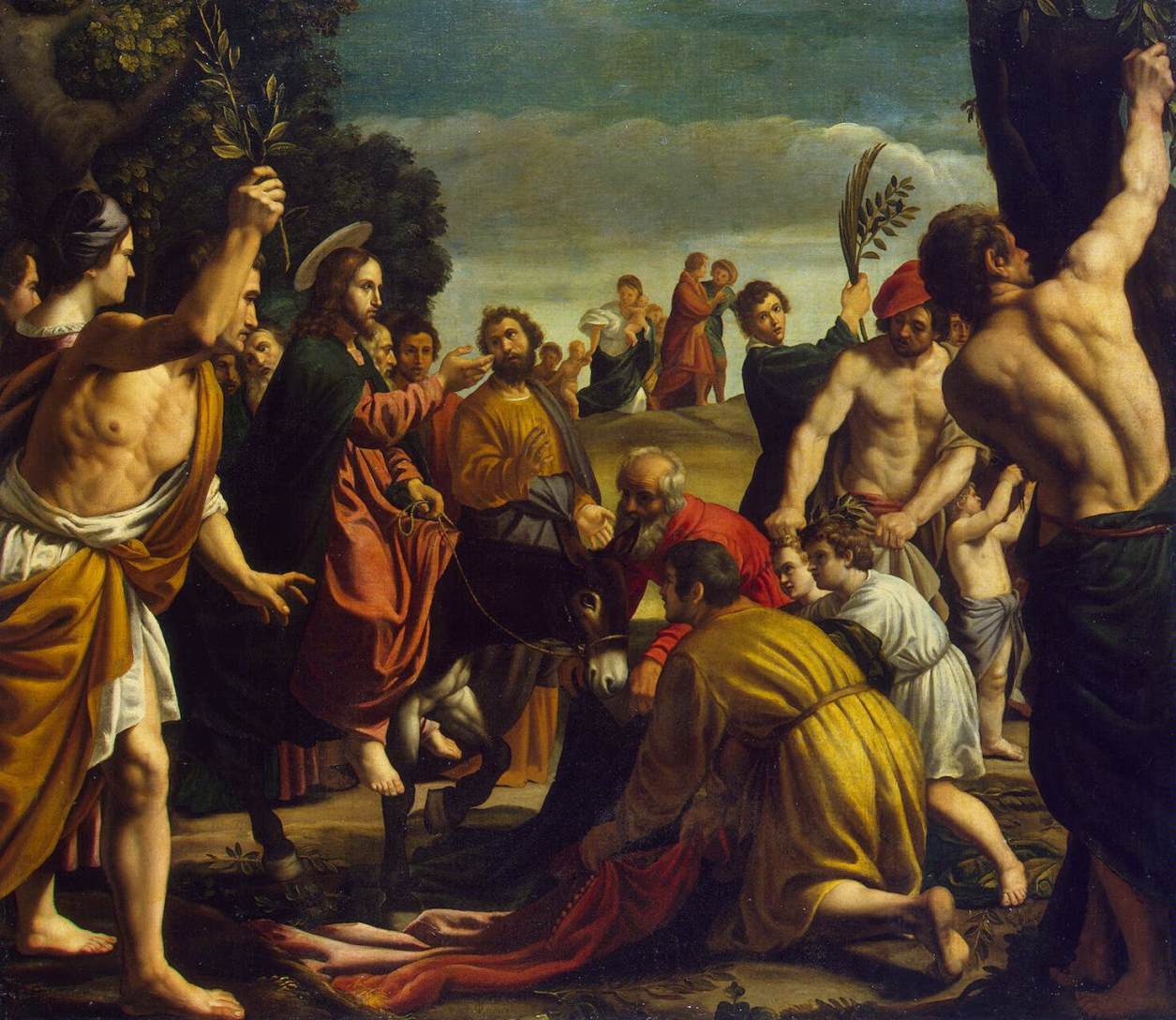
[Monday Motivation]
We’ve been considering what seems to be reversals of fortune on display in Christ’s entry into Jerusalem and then His passion.
To be sure, as Christ entered Jerusalem He knew what was soon to unfold, but that doesn’t diminish the gravity of the events themselves.
To one extent or another, we all go through similar reversals time and again in life; sometimes from our own errors, sometimes from events beyond our control.
The bottom line is that the ups and downs of life come what may. No one gets a pass.
As always, Christ gives us the perfect model of how we should respond to life’s trials. We see this particularly in His agony in the garden, where we are told His sweat became like drops of blood.
Christ allowed Himself to experience what we all experience – the agony that descends when our circumstances are brutally different than our desire. Here’s how St. Augustine puts it, “Christ thus as man shows a certain private human will, in which He who is our head figures both His own will and ours when He says, ‘Let it pass from me.’ For this was His human will choosing something as apart for Himself.”
We often encounter loathsome circumstances and pray that it would be different, and in that we experience agony.
Christ then shows us the way forward, as St. Augustine continues to explain, “But because as man He would be righteous and guide Himself by God’s will, He adds, ‘Nevertheless not as I will, but as thou will’; as much as to say to us, ‘Man, behold yourself in Me, that you can will somewhat apart from yourself, and though God’s will is other, this is permitted to human frailty.”
The point being, Christ, in His humanity, conforms His will to His Father, in part as an example to each of us.
And what is the very next thing is that happens? The Father sends angels to minister to Christ. No sooner does Christ submit His will to the Father than the Father sends divine assistance:
After withdrawing about a stone’s throw from them and kneeling, he prayed, saying, “Father, if you are willing, take this cup away from me; still, not my will but yours be done.” And to strengthen him an angel from heaven appeared to him.
This is a principle we should all cling to in the spiritual life – God typically waits on our act of will, and then He makes His move. Once we truly give a heart-felt “yes” – God rushes in.
And from then on Christ is at peace. Yes – He undergoes horrific suffering. But He is at peace amidst it. He is resolute. In His humanity, He is given all the graces necessary to face the challenge.
Here is how St. Hilary puts it, “He now confidently awaited His Father’s will concerning the disciples, concerning which He had said, Thy will be done, and in obedience to which He drunk the cup that was to pass from Him to us, diverting upon Himself the weakness of our body, the terrors of dismay, and even the pains of death itself.”
And from St. Jerome, “He goes forth undaunted by the prospect of His own Passion to meet His pursuers, and offers Himself voluntarily to be sacrificed.”
So, when we face adversity in life we need to follow Christ’s example of offering our concerns, fears, and desires to God, but then as firmly as we are able, accept our Father’s will, whatever it may be (more in the postscript). And then we let God be God, with the trust that He will send ministering angels and provide a peace beyond understanding even in the midst of events that we would not have chosen for ourselves, so that we can go forward confidently, and undaunted.
Holy Week blessings to you –
Steve and Karen Smith
Interior Life
Postscript: Jesus, I trust in You.
We often emphasize the power of the simple prayer given by our Lord to St. Faustina – “Jesus, I trust in You.”
Those five words are something of a gateway for turning our will over to God. The “trust” of that prayer is meant to be a radical submission of our will to God’s – exactly as Christ demonstrates during His agony in the garden.
When trials come, when we find ourselves with Jesus on the Mount of Olives, we might start with “Jesus, I trust in You,” and pass through that gateway:
“Jesus, I trust in You … more than I trust in myself. I trust Your will over my own. I trust Your plan for my happiness over my own desires. I trust Your plan for my loved ones over my own designs. I trust You are working all these sufferings to the greatest possible good. I trust You are always by my side. I trust You will give me all the graces necessary to come through this. I trust You will bring me to a time when I look back on this trial and see only how much You loved me through it…”
